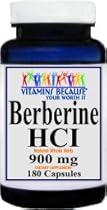Save rabbits that are sick with mucoid enteropathy (mucoid enteritis), by treating them with Berberine
Mucoid enteropathy, also known as mucoid enteritis, is a severe, watery diarrhea of baby rabbits that may also include mucous in the stool. It is usually lethal, extremely difficult to treat, and afflicted rabbits die very soon after the onset of the illness. I have saved several kits that were sick with mucoid enteropathy by giving them Berberine. What is nice about Berberine is that it is available over the counter without a prescription, and is a food supplement made from the Goldenseal plant.
I had been having some intermittent problems with mucoid enteropathy, and I went in search of an over-the-counter remedy for treating it. I saw that Berberine has antibiotic properties against some species of Clostridium, including Clostridium perfringens, which is thought to be an agent of mucoid enteropathy. I have found it to be very effective for saving bunnies.
I have no idea if there is a “correct” dosage. When kits get sick with mucoid enteropathy, it is almost certain that they are going to die very soon, so I proceed with the idea that it is better to treat the disease aggressively.
I mix the contents of one 450 mg strength capsule with just enough water to make a thin paste. (Berberine is a bright yellow, and will stain clothing.) Then I draw it up in a syringe and administer it to the bunny by mouth. I try to get the bunny to consume as much as possible, but usually, the amount the bunny accepts is about 1/2 to 1 ml of the mixture, depending on his size. They don’t seem to mind the taste.
When the mucoid enteropathy is a newly discovered case, I treat it every 2-3 hours the first day. I do not know if it is necessary to administer it that often, but I don’t want to take any chances of losing the bunny. Usually, if I have caught the emergent case of enteropathy soon enough, the bunny improves rapidly, and often there will be dramatic improvement in as little as two hours.
I continue treatment twice a day for two more days after the bunny has recovered. I provide plenty of good quality Timothy hay. I will also open a capsule of Berberine and dust it over the top of the food pellets for the rest of the litter. I have not noticed any indications of the disease being contagious; if one bunny gets it, it does not mean necessarily that his littermates will.
Kits that have gone through an episode of mucoid enteropathy are very likely to relapse and have more episodes, so they must be monitored, and the treatment process repeated each time the disease reappears. Some bunnies that I have treated for enteropathy have had a single episode with no more incidents. I have two littermate does that survived several episodes of the disease until they reached ten weeks of age, and now they are healthy, happy four month old juniors. [UPDATE: As of Jan. 2017, I have raised two litters out of one of the does. She is an excellent mother who produces beautiful kits. So far, none of her kits has had an episode of the illness.]
This is the Berberine I purchased at Amazon.com. There are several brands to choose from; the brand I have been buying is “Vitamins Because.”
at Amazon.com. There are several brands to choose from; the brand I have been buying is “Vitamins Because.”
I am not a veterinarian, and this should not be taken as veterinary advice. This article has no guarantee or warranty and is for information only. It would be very interesting to see a valid scientific study about the efficacy of Berberine as a treatment for mucoid enteropathy.
Some breeders report good results by taking some night feces from a healthy adult rabbit, mixing it into a slurry with a little water, and giving that to the sick bunny orally. I have not tried this method myself.
–Lil Peck